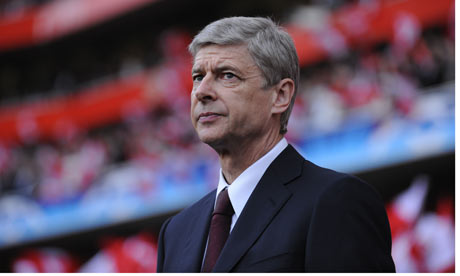Arsenal Football Club, one of the most esteemed football institutions in England, has enjoyed a rich history of success under the stewardship of various remarkable managers. Throughout its existence, Arsenal has secured numerous domestic league titles, and the managers behind these triumphs have become legends in their own right.
Arsenal fans can find the perfect gambling site for this season’s Premier League. The Gunners are battling for the title and could add Mikel Arteta to the list below. Let’s take a closer look at the title-winning managers who have left an indelible mark on the club’s history.
Herbert Chapman (1925-1934): The Pioneer of Modern Football
Herbert Chapman, often heralded as one of the pioneers of modern football management, is the manager credited with revolutionizing Arsenal and laying the foundation for their success. Arriving in 1925, Chapman swiftly transformed the club from a struggling side into a dominant force. He won Arsenal’s first-ever league title in the 1930-1931 season, followed by another title in 1932-1933.
Chapman’s innovative tactics, including the use of the WM formation and floodlit matches, set new standards in English football. His legacy endures not only in the club’s trophy cabinet but also in the iconic marble halls of Highbury.
George Allison (1934-1947): Sustaining Success in Challenging Times
Following Herbert Chapman’s untimely death in 1934, George Allison took the reins and faced the daunting task of continuing the club’s success. Remarkably, Allison guided Arsenal to another league title in the 1937-1938 season. This achievement showcased his adeptness in managing a transitional period and maintaining the club’s competitive edge.
Under Allison’s leadership, Arsenal displayed resilience during a challenging period marked by the outbreak of World War II. His ability to keep the team competitive during these tumultuous times is a testament to his managerial prowess.
Tom Whittaker (1947-1956): Perpetuating Glory
Tom Whittaker, a loyal servant to Arsenal both as a player and a physiotherapist, succeeded George Allison as the club’s manager in 1947. Whittaker continued to build on the legacy of success, securing Arsenal’s fifth league title in the 1947-1948 season. His tenure as manager was marked by his meticulous attention to detail and commitment to nurturing young talent.
Whittaker’s contributions extended beyond his managerial duties. He played a pivotal role in Arsenal’s backroom staff, ensuring the club’s enduring success and prominence in English football.
Arsène Wenger (1996-2018): The Modern Architect of Dominance
Arsène Wenger’s appointment as Arsenal manager in 1996 marked a watershed moment in the club’s history. The Frenchman brought a new era of attacking football and professionalism to the North London club. Under Wenger’s guidance, Arsenal enjoyed a period of unprecedented success, winning three Premier League titles (1997-1998, 2001-2002, and 2003-2004), making the “Invincibles” era a legendary chapter in the club’s history.
Wenger’s emphasis on nurturing young talent and his astute player recruitment made Arsenal a perennial title contender. His legacy goes beyond trophies, as he transformed the club’s identity and left a profound impact on English football.
George Graham (1986-1995): The Stalwart of Solidarity
George Graham’s tenure as Arsenal manager is synonymous with defensive solidity and hard work. During his time at the helm, Graham instilled a strong defensive ethos that led to the club’s success in the late 1980s and early 1990s. He delivered two league titles (1988-1989 and 1990-1991) and an FA Cup win in 1993.
Graham’s discipline and tactical acumen laid the foundation for Arsenal’s future successes and instilled a winning mentality that would endure for years to come.
These five title-winning managers are the architects of Arsenal Football Club’s glorious history. Their contributions, innovations, and leadership have elevated the club to legendary status in the world of football. As Arsenal continues to evolve and chase further success, the legacies of these iconic managers serve as a source of inspiration for future generations of players, managers, and fans alike.

